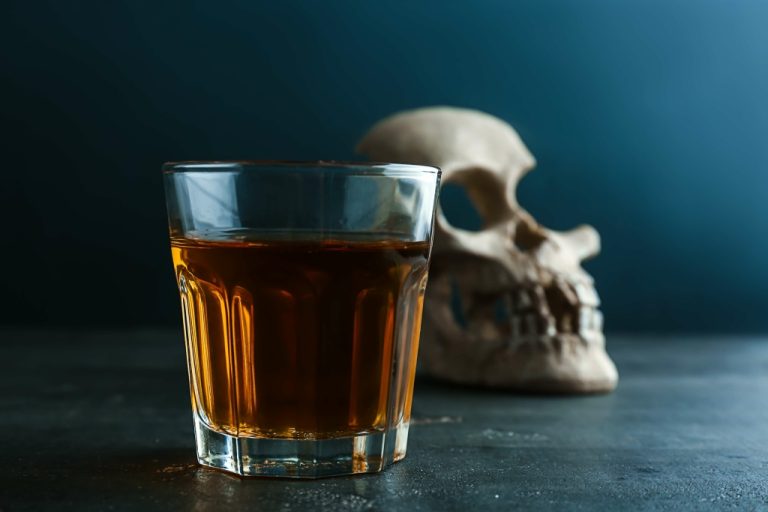Monitor your fluid intake and how much urine you are producing. Large amounts of dark-colored urine could indicate dehydration. Alcohol decreases the amount of ADH your body does wine dehydrate you produces, making it harder to retain enough fluids.
Alcoholic Hepatitis: Spot The Signs, Reclaim Your Health
While red wine can contribute to dehydration, especially when consumed in excess, it doesn’t automatically https://taxi.kockakor.com/index.php/2021/01/12/signs-of-alcoholism-stages-symptoms-cbh/ dehydrate you. Its impact depends heavily on factors such as the amount consumed, your hydration levels beforehand, and your individual body’s response. Firstly, it’s important to understand that wine is primarily composed of water. In fact, most wines have an alcohol content ranging from 12% to 14%, which means that the remaining 86% to 88% is water. This high water content should theoretically counterbalance any dehydrating effects of the alcohol present in the wine.
How Much Wine Can You Drink Before You’re Dehydrated?

As important as alcohol content may be, even more important is how much you drink in a given sitting. Drink too many beers too quickly, and you’ll end up as dehydrated as you would taking a shot at the bar. “Drinking one beer over the course of a dinner will not increase your blood alcohol levels as much as if you drank four beers in the same time frame,” says Rumsey. Exercising after drinking red wine significantly increases the risk of dehydration. It’s best to avoid strenuous activity after consuming alcohol and focus on rehydrating. It’s worth mentioning that individual factors can also play a role in how wine affects hydration.

Don’t Drink On An Empty Stomach
But it’s best if these drinks are spread out over the week rather than enjoyed all in one sitting. We know alcohol can make us dehydrated, but not everyone gets dehydrated at the same rate. Let’s go through some reasons why dehydration from alcohol may impact different people differently.
Yes, it is possible to stay hydrated while enjoying red wine, but it requires mindful consumption. Red wine contains alcohol, which can lead to dehydration if consumed in excess. However, moderation, along with drinking water, can help maintain hydration levels. Although it contains water, wine is an alcoholic beverage, and alcohol has diuretic properties, meaning it increases urine production and can lead to fluid loss. Consequently, excessive wine consumption without adequate hydration can potentially dehydrate the body.
- Don’t assume that a single glass of wine will overly dehydrate you, but keep in mind that wine is generally dehydrating compared to other alcoholic beverages like beer.
- Excessive wine consumption is characterized by consuming more than moderate amounts, usually exceeding one to two standard glasses for women or two to three glasses for men per day.
- The pituitary gland decides to do this based on signals sent from detectors that read the volume of water in the body, as well as its salt level.
- However, excessive consumption, especially without drinking enough water, can exacerbate the diuretic effects, potentially causing dehydration.
Beer and wines, meanwhile, tend to have lower alcohol content, though fortified wines like sherry and Madeira pack a kick at above 14.5% alcohol. The pituitary gland decides to do this based on signals sent from detectors that read the volume of water in the body, as well as its salt level. When dehydration is detected, a message is relayed and ADH is released. Alcohol convinces the pituitary gland that ADH shouldn’t be introduced into the situation, despite the alcoholic drink itself being made up largely of water. A person who is already at risk of dehydration from one or more of the above factors should avoid or limit alcohol consumption. Alcohol is a diuretic and therefore causes excessive urination.
Can you stay ahead of dehydration while drinking alcohol?
If someone is experiencing any of these symptoms, they should seek immediate medical attention. The best way to rehydrate quickly is to regain the minerals that were flushed out due to excessive urination. Dehydration certainly contributes to hangovers but it’s just a piece of the puzzle.
Feelings of Relaxation or Drowsiness
When alcohol is present in the bloodstream, ADH secretion decreases, leading to increased urine production. Consequently, alcohol acts as a mild diuretic and expels more fluids from the body, ultimately contributing to dehydration. On the downside, the alcohol in red wine can act as a diuretic, increasing urine output and potentially leading to dehydration. Research published in the British Journal of Nutrition (Smith, 2020) indicates that alcohol consumption can impair the body’s ability to retain fluids.
- When alcohol is present in the bloodstream, ADH secretion decreases, leading to increased urine production.
- Remember to drink responsibly and prioritize water intake for optimal hydration.
- Excessive consumption of red wine or any alcoholic beverage can negatively impact athletic performance and hinder post-workout recovery due to its inflammatory effects and potential dehydration.
Sugary drinks don’t have the same problems, unless you have difficulty regulating your blood sugar. “For some folks with medical conditions such as diabetes, they urinate a lot already based on blood sugar level,” Mieses Malchuk says. “Therefore drinking a sugary alcoholic beverage can make it worse and alcoholism cause dehydration.”
In this article, I will explore this issue and offer some insights on how wine affects our level of hydration. Use these social-bookmarking links to share Why does drinking alcohol cause dehydration?. Your body has detectors that can sense both the saltiness of your water, and the volume of the water. If these detectors reckon that you are dehydrated, they send a signal to the posterior pituitary gland, which starts pumping out ADH.
It’s important to note that the dehydrating effect of wine depends on the quantity consumed and the individual’s overall hydration status. Consuming moderate amounts of wine alongside adequate water intake should not lead to significant dehydration. However, excessive consumption, especially without drinking enough water, can exacerbate the diuretic effects, potentially causing dehydration.
